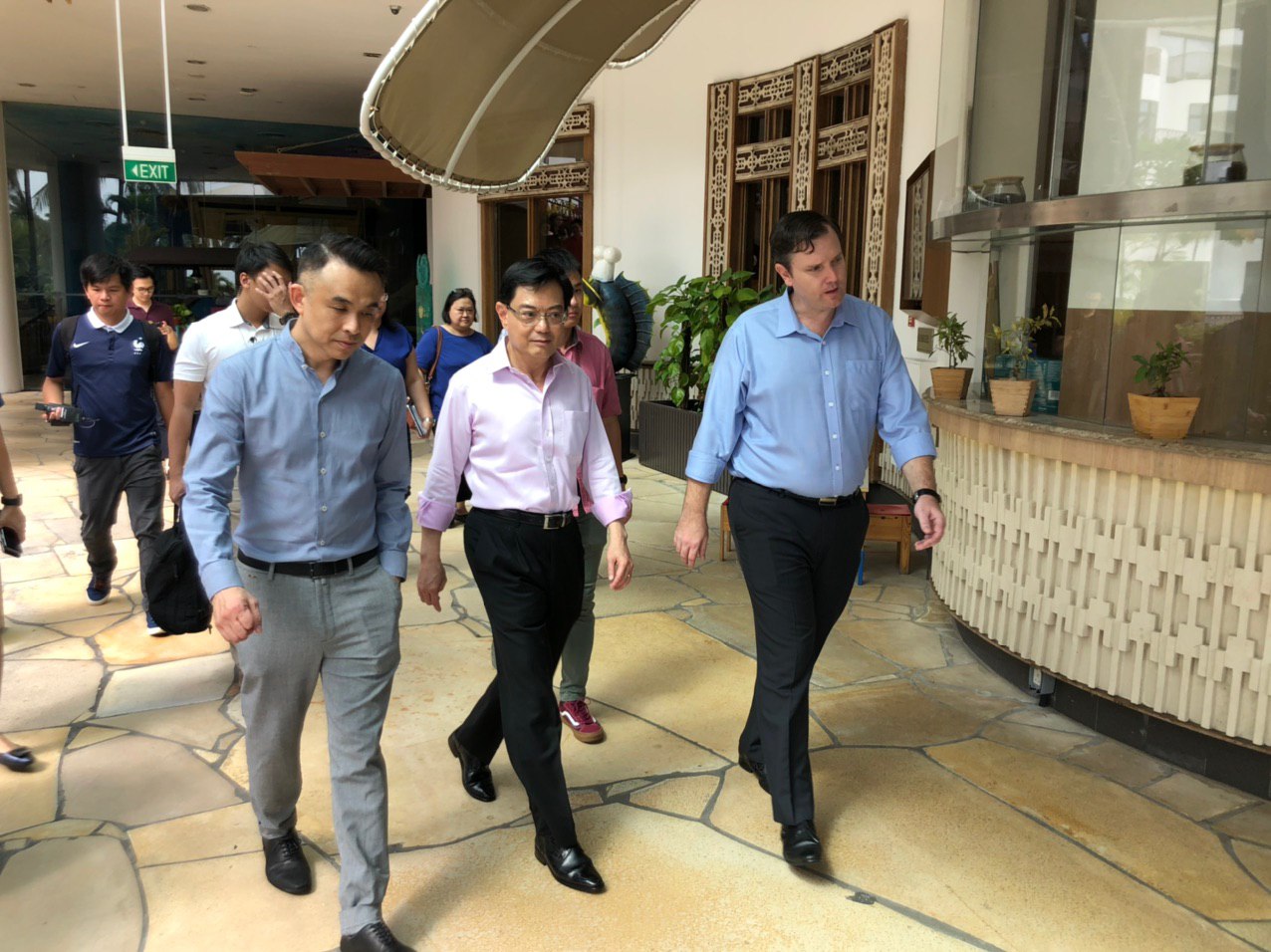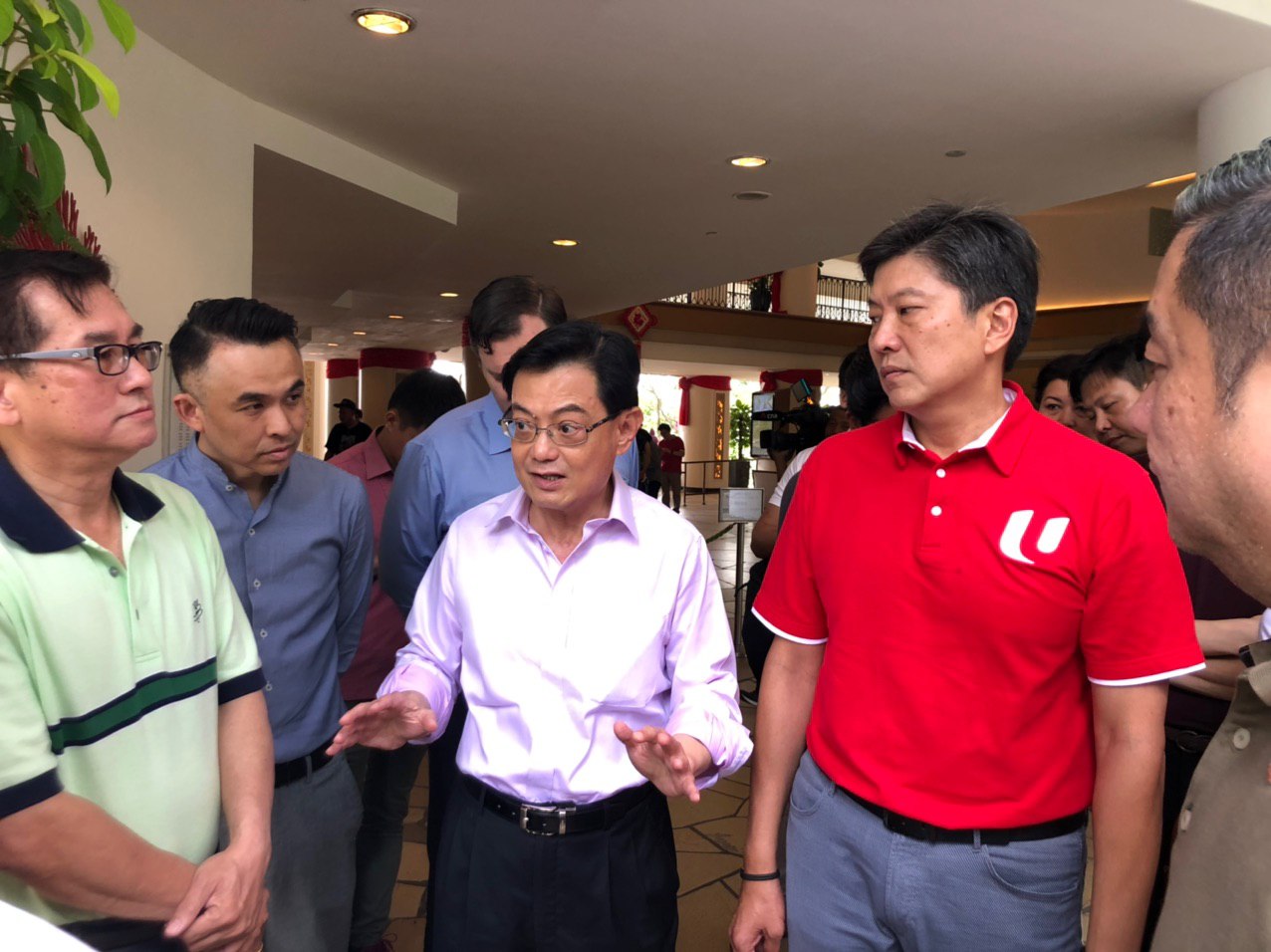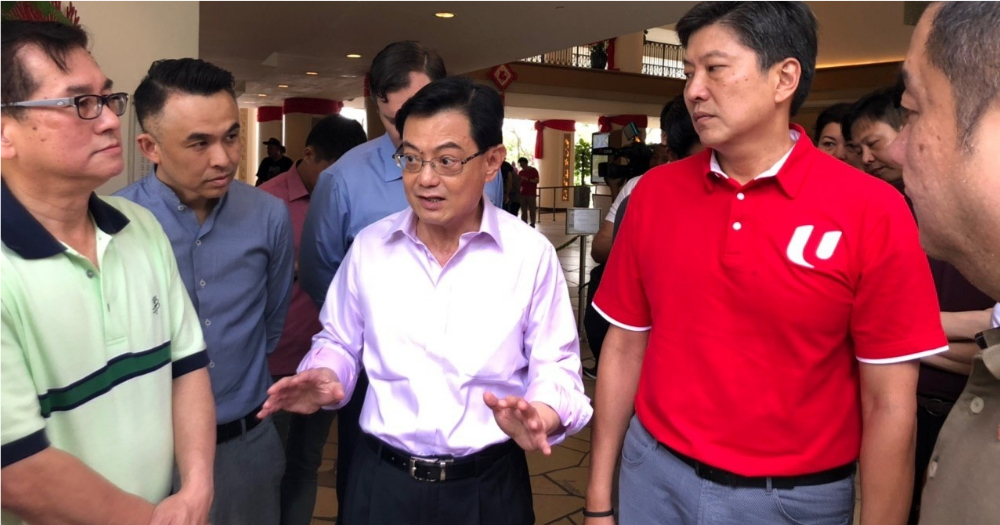Deputy Prime Minister and Finance Minister Heng Swee Keat announced that the government will provide targeted support to the sectors that have been more directly affected such as the tourism and transport sectors.
Heng added that the government is also prepared to help firms retain and train their workers, including providing some support for part of their wage costs.
Visit to Shangri-La Rasa Sentosa
Heng made the announcement during his visit to Shangri-La's Rasa Sentosa on Feb. 1, where the first confirmed case of the coronavirus in Singapore had stayed.
During his visit, Heng, accompanied by Labour Chief Ng Chee Meng, spoke to some frontline workers at the hotel which included some taxi drivers as well as hotel staff members.
 Photo by Jason Fan.
Photo by Jason Fan.
Heng said that he is glad to hear from the frontline workers who expressed confidence in what they are doing in view of the outbreak.
"Our frontline workers are at the forefront of this, and it is important that the necessary precautions are taken, and that they remain confident and calm."
 Photo by Jason Fan.
Photo by Jason Fan.
Tourism and transport sectors to receive targeted support
Speaking to the press after the visit, Heng said that depending on how the coronavirus situation develops, the economic impact could "broaden and intensify", bringing uncertainty to the economy and jobs in Singapore.
For a start, the tourism and transport sectors will feel the economic impact most intensely and a knock-on impact on related industries and companies is expected.
Just this morning, Ng, who is the National Trades Union Congress (NTUC) Secretary General, said that taxi and private hire operators will be providing rental waiver and a one-time allowance of at least S$100, should the drivers be quarantined for the coronavirus.
Heng added that he "fully understand Singaporeans' concerns" and he wanted to assure people that the government will take "concerted action across all fronts" to manage the situation. Photo by Jason Fan.
Photo by Jason Fan.
Measures to help cushion S'poreans from economic impact
In the event of a broad-based economic slowdown in the coming months, Heng said that the government will have measures to support companies and workers.
Some examples he mentioned include helping companies with their short-term cash flow needs, retaining and retraining of workers with SkillsFuture and providing support for part of their wage costs.
These measures are largely similar to the relief package during the SARS period in 2003, except the introduction of the next bound of SkillsFuture.
"There will be some elements which will be similar. In particular, in the way that we helped companies with short-term cash flow problems.
But there will be some where we can now build on the measures that we had put in place. For instance, in 2003, we did not have SkillsFuture. In fact, we already planning the next bound of SkillsFuture. But with this outbreak, we are now looking at how we can help companies to retain their workers, to enable them to go for training, and to even foot a part of the wage bill, so that workers remain employed."
Heng added that the economic package is not something entirely new as the team already has a package ready before this outbreak to tackle the effect of the US-China trade conflict.
How much will the economic package be?
Heng said that the economic package given out during SARS was over S$200 million but did not reveal the exact sum of the upcoming package.
Heng added that the current situation is also different from 2003 as "our economy has since grown a fair bit" and "economic structure is also changing".
He cited a closer economic linkage with the Chinese economy as well as a larger tourism sector as compared to the past.
The difference in circumstances will warrant different measures but it is "important for us not to fight the last war", Heng said.
More details will be revealed during the budget announcement on Feb. 18, 2020.
Top photos by Jason Fan
If you like what you read, follow us on Facebook, Instagram, Twitter and Telegram to get the latest updates.
